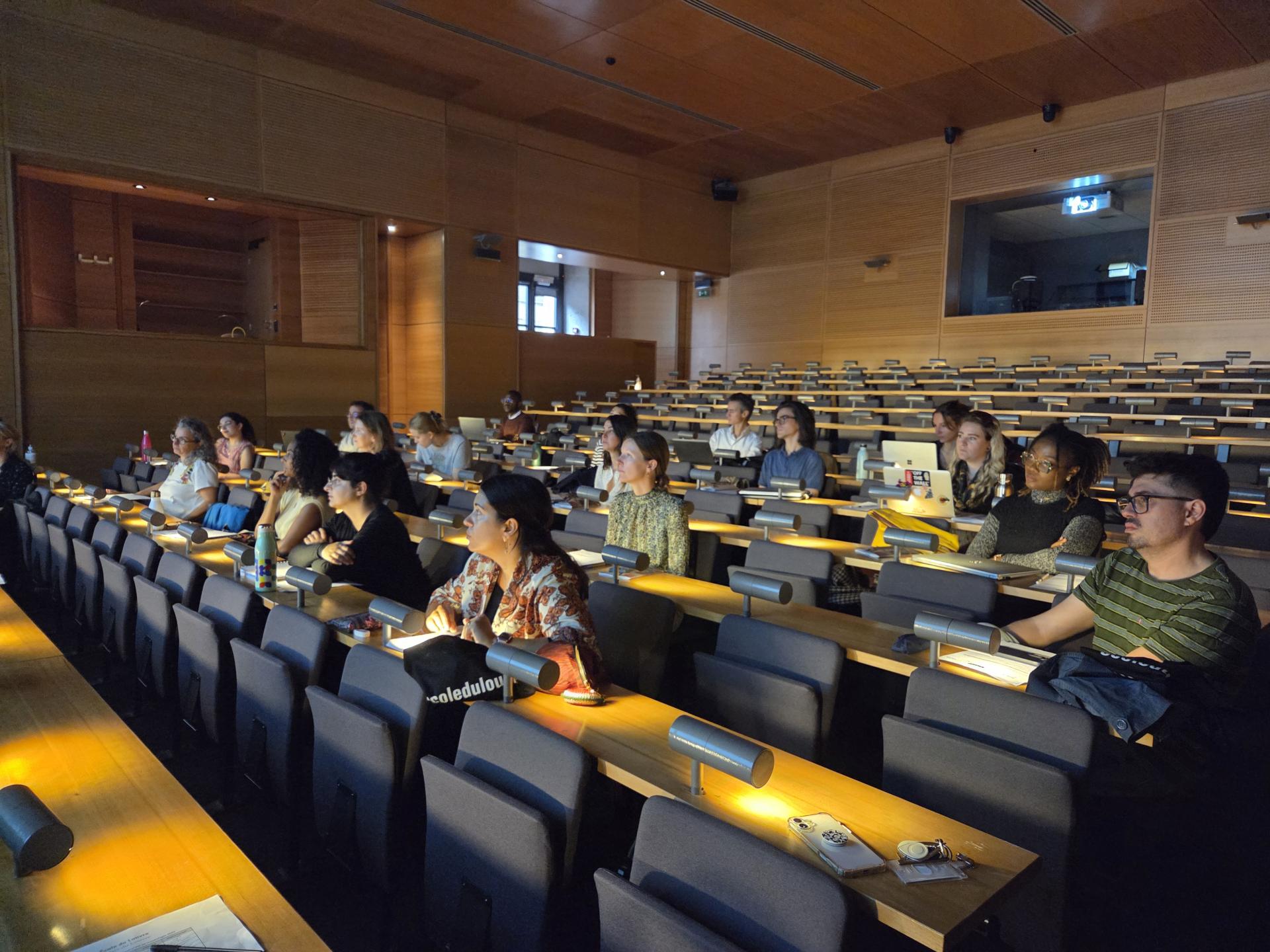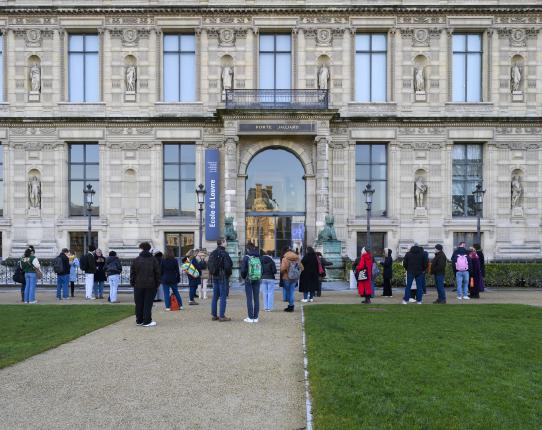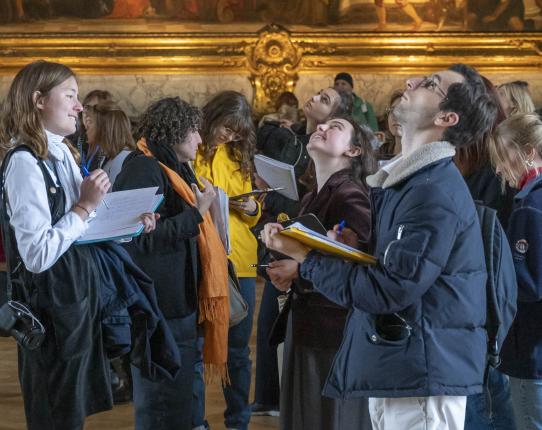
Our diplomas
Our diplomas
Sanctioning three years of study, combining a common core and one (or two) specialties chosen by the student, the premier cycle diploma from the École du Louvre is worth the grade de licence. It must be obtained in a maximum of five years.
Museology has been emblematic of the École du Louvre for almost a century. An institutional diploma, the diploma in museology is awarded to students who have successfully completed their first year of graduate studies, which includes a set of courses and seminars representative of the diversity of contemporary approaches to the discipline.
The special diploma in museology, an institutional diploma, is specifically awarded, alongside the master's degree awarded by Sorbonne-Université, to students who have completed the History of Art and Museum Studies course co-organized in English at SUAD (Sorbonne Abu-Dhabi).
Sanctioning two years of graduate studies, this diploma is worth the grade of Master. It is awarded to students in the various courses offered by the School in M2: "Art history applied to collections", "Museology", "Mediation", "Sensitive goods, provenance and international issues", "Management and preventive conservation", "Art market".
The École du Louvre participates in the awarding of three doubles-diplomes master's degrees: with the Institut des sciences politiques de Paris (Sciences Po), with the École supérieure des sciences économiques et commerciales (ESSEC) and with the University of Heidelberg (bilingual master's degree).
The School awards a institutional diploma corresponding to a new course offered to students holding a master's degree. This diploma is awarded after one year's training in contemporary research methods in art history, archaeology and museology. It allows direct access to the third cycle at the École du Louvre.
Since the establishment of the École du Louvre, studies have culminated in the writing of a thesis. Now modeled on university doctoral theses, and meeting the same expectations, it is most often carried out under joint supervision (with French or foreign universities). Successful completion of the thesis and a certain number of prerequisites give access to the diploma of 3e cycle de l'École du Louvre.
The 3e cycle libre diploma is awarded at the end of the same curriculum as the 3e cycle diploma, but is not carried out under university co-supervision and allows a completion that does not strictly conform to the doctoral model (for example by the length of the thesis completion).
In addition to these diplomas, students in the classes préparatoires prepare for various competitive examinations.


